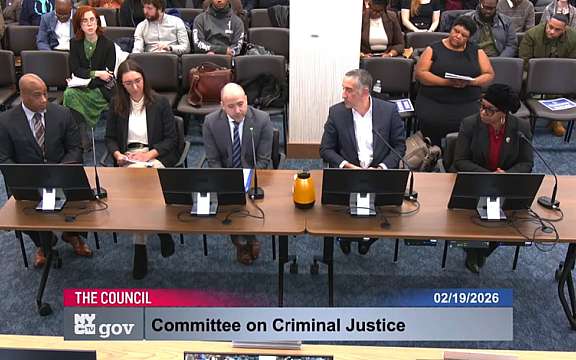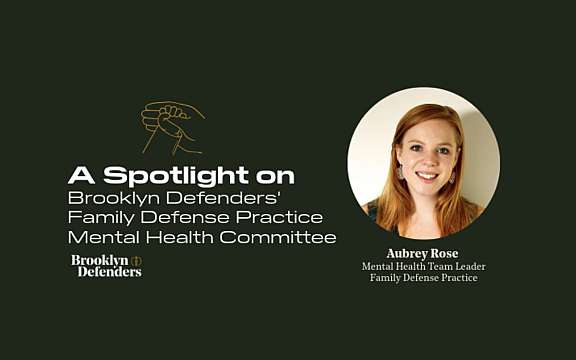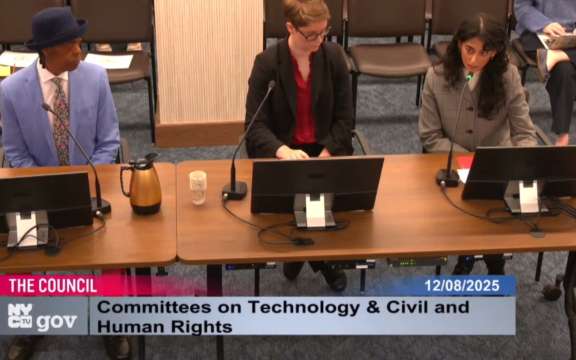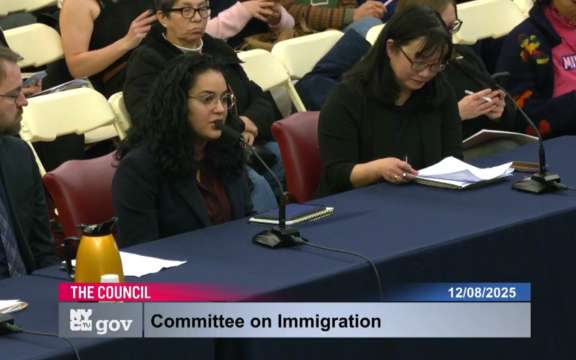BDS Testimony Presented Before NYC Council Committee on Education on Remote Learning
TESTIMONY OF:
Anna Arkin-Gallagher – Supervising Attorney, Education Practice
BROOKLYN DEFENDER SERVICES
Presented Before
The New York City Council Committee on Education
Oversight Hearing on Remote Learning – The Impact of Coronavirus (COVID-19) on the City’s Schools
May 27, 2020
My name is Anna Arkin-Gallagher. I am a Supervising Attorney in the Education Practice at Brooklyn Defender Services. Brooklyn Defender Services (BDS) provides innovative, multidisciplinary, and client-centered criminal, family, and immigration defense, as well as civil legal services for over 30,000 people in Brooklyn every year. We thank the City Council Committee on Education and Chair Treyger for holding this important hearing on remote learning and the impact of COVID-19 on New York City’s schools.
BDS’s Education Unit delivers legal representation and informal advocacy to our school-age clients and to parents of children in New York City schools. Many of the people we serve are involved in the criminal legal or child welfare systems. In addition, a significant number of the students we work with qualify as “over-age and under-credited” and have been retained at least one grade. More than half of the students we work with are classified as students with disabilities. As an interdisciplinary legal and social work team, we work to improve our clients’ access to education and a significant portion of our advocacy relates to special education, school discipline, reentry and alternative pathways to graduation.
Transitioning a school system of 1.1 million students to remote learning has been a monumental effort. Our unit has seen teachers, paraprofessionals, and school administrators work long hours to ensure that students can access some semblance of a traditional education during this extraordinary time. At the same time, we remain deeply concerned that the Department of Education’s remote learning program threatens to exacerbate the many inequities that have long existed within the City’s education system.
DOE Must Provide Adequate Mental Health and Behavioral Supports for Those Most Affected by COVID-19.
At the start of the pandemic, many of the families we have been working with lacked access to the technology required to access the DOE’s remote learning platforms. Even after waiting sometimes weeks to secure internet-connected devices, these families have continued to struggle with slow internet connections, the lack of private space in crowded apartments or shelters, and other logistical challenges.
These challenges, moreover, come on top of tumultuous circumstances produced by the pandemic, as many families struggling to access remote-learning platforms are at the same time experiencing profound trauma borne from job losses, financial insecurities, and the deaths of close family members and friends. Many of the families we work with have described serious challenges in encouraging and facilitating school engagement, particularly with older students.
With all this in mind, we believe that the DOE must formulate a plan that helps to provide adequate mental health and behavioral support services to students, and to ensure that schools are wellpositioned to address the trauma that students and staff have suffered. A comprehensive plan to provide these services would require additional resources from the City, and we appreciate the work that this Committee has done to ensure that additional social workers were brought into DOE schools for the current school year even before this pandemic. It is essential that schools have intensive and proactive support services in place, not just during this period of remote learning, but also when students return–in whatever form–to school buildings.
The DOE Should Work with Parents and Caregivers to Keep ACS and the NYPD Out of Remote Learning.
We cannot overstate the extent of the harm that flows from unnecessary and invasive child welfare involvement for poor families and families of color. Since New York City families began to experience the challenges of this pandemic, parents and other caregivers that we represent have experienced new Administration for Children’s Services (ACS) involvement because of remote learning delays and challenges. We have confronted instances in which schools call ACS or the State Central Register (SCR) upon noticing that students have not logged into the remote learning platform, even when these absences resulted from missing or delayed devices, technological difficulties, and internet connectivity issues. We have become aware of at least one situation in which the school called ACS to report suspected educational neglect, even after speaking with the parent who confirmed that the student was logging into remote learning daily and completing all of his coursework, but was simply having difficulty submitting that work to the teacher due to a technological issue.
We have also found that schools are making reports to ACS or SCR even after working with the family to come up with an alternative plan to remote learning. In one instance, our client worked with the school to develop a plan for sending paper packets for the student to work on at home. However, despite knowing that the student was participating in this alternate plan, the school continued to mark the student as “absent” and eventually made a report of suspected neglect to the SCR. In another case, our client informed the school that she was having internet connectivity issues and that her child was still waiting for a DOE-issued data-enabled device. The school made a report to the SCR anyway, and our client has already received a letter from the Office of Children and Family Services stating that the case called in by the school had been “indicated,” which may have serious negative employment consequences for our client and requires her to affirmatively challenge this determination and ask that OCFS amend and seal this report.
We also have concerns that “absences” due to remote learning are inviting other kinds of unnecessary surveillance of and intervention in families’ lives. It is our understanding that schools have sometimes been encouraged to contact the New York Police Department (NYPD) to perform “wellness checks” of students who have struggled to access remote learning services. We are aware of at least one case in which the NYPD investigated a family even after a parent informed the school that the child was medically unable to participate in remote learning. Visits from the police for this purpose are invasive, unsafe, and unnecessary, especially during this time of social distancing.
We ask that the City Council work with the DOE to eliminate these intrusive and punitive practices. We hope that the Council will consider the impact that ACS and police visits have on poor families and families of color and encourage the DOE to act as a partner with parents and caregivers who are trying to adjust to the challenges of this pandemic. During this time when New York City families are cut off from many other systems of support, teachers and school staff who already know and work with parents, caregivers, and students are in the best position to assess barriers to engagement with remote learning and directly support and counsel families without involving other government agencies.
Education in Jails and Detention Facilities
School-age young people in city jails and juvenile detention facilities have the right to receive educational services. However, during this pandemic, they have been especially ill-served by remote learning.
Students at the Crossroads and Horizon facilities have had no access to synchronous learning, and only minimal access to any kind of teacher interaction. Up until last week, students at these facilities were only able to communicate with education staff by leaving notes for their teachers in the learning software. Students now can communicate with teachers only through a phone hotline.
Students on Rikers Island went weeks without receiving any educational services whatsoever. As of last week, paper packets were supposed to be distributed to students across facilities at Rikers, but these students still lack the ability to communicate with teachers or other educational staff to get any support with their learning. We have heard from many young people who–locked into their housing units with no access to programming–are eager to use this opportunity to earn some high school credits or make progress towards earning their high school equivalency diplomas, but have been unable to do so.
Therefore, as plans are made to continue with remote learning and eventually to resume in-person learning, it is essential that DOE prioritize the delivery of services to students in jails and detention facilities, so that these students can receive the education that they are entitled to.
Conclusion
We recognize that DOE has undertaken extraordinary efforts to confront an extraordinary time. But we should all insist that DOE strive to tailor these efforts to address the needs of all students within the school system. Otherwise, the already gaping inequalities that exist within the system will only become more severe.
We thank you for the opportunity to submit testimony on this critically important topic. If you have any questions, please feel free to contact me at aarkingallagher@bds.org or (646) 971-2719.



